Get to Know the 2018 Future Filmmakers on the Road to the LA Film Festival
What’s the coolest thing you ever made in high school?
For most of us, the height of our prep school creativity was probably achieved through some sort of papier-mâché volcano for the science fair or elaborate “promposal” flash mob. Then again, most of us aren’t Future Filmmakers.
Returning again for the 2018 LA Film Festival (September 20-28!), our annual Future Filmmakers Showcase is a special, one-of-a-kind screening of short films made by talented high school students from across the globe. This year’s shorts represent a quantum leap forward in ambition, as the easy availability of professional filmmaking tools and increased sophistication of young content creators continues its steady upward trajectory.
These young auteurs go way beyond the typical AV club, and their work deserves to be seen: The 2018 Future Filmmakers Showcase screens Saturday, September 22 at 10:00 AM—click here for more details.
We asked these young filmmakers to give us a peek into their process, sending out a brief questionnaire to find out what inspired these Gen-Z (Millennials are so passé) creators to pick up the bullhorn and call “Action!”
What inspired you to start making films?
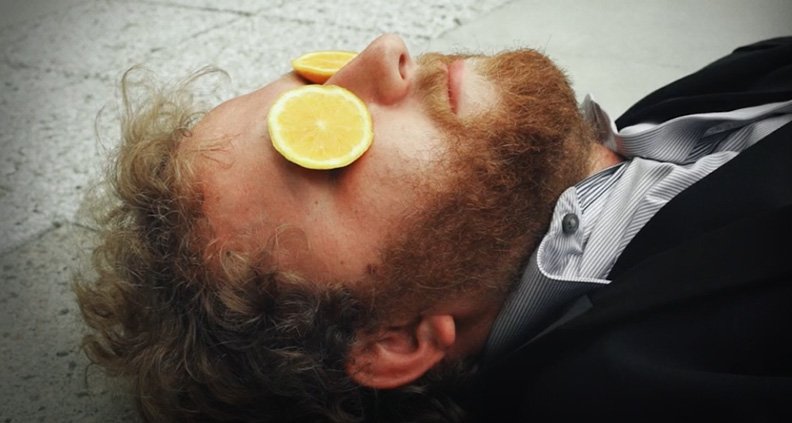
I was an extremely shy kid, and making films really helped me break out of my shell. I would make silly little short films with friends or make a film for a class presentation instead of talking in front of the whole class. (Ava Young, You Look Nothing Like Your Mother)
My dad had this old DSLR sitting tucked away in a cabinet in our house. Naturally as a curious young kid, I pulled it out, begin taking photos and within the next couple years, really delving deep into the ins and outs of still photography. I think somewhere along the way, filmmaking developed simply as a natural successor to that passion, but it really began as once I saw cinema not just as entertainment, but as an art. (Joji Baratelli, Marmelade Melancholy)
Tom Desanto visited a lecture course I was taking at USC’s summer program and spoke to us for a couple hours. Out of the many quotable moments from his time with us, this one inspired me the most: “The future will be determined by the generals or the artists. When the governments order the Chinese and American armies to fight over a lithium mine in the Middle East I hope that people will remember how they wanted to be Spider-Man or a Jedi and stop what they are doing. I want a Star Trek universe, not a Mad-Max universe.” (Lex Torrington, In or Out)
Growing up in a family of authors, I was influenced by the art of storytelling since childhood. My creativity blossomed with writing, but slowly transformed into filmmaking once I discovered iMovie. (Ishan Modi, Just Stories)
When I was in 6th grade a friend of mine was making a horror movie with some other kids from our school, and he asked me to act in it. At that point I thought I wanted to be an actress, but when I saw what my friend was doing as the director it seemed so much more interesting to me than acting. So after that I started making my own films. (Lola Kenet, Weight of the Whale on Her Shoulders)
When I was younger, my parents showed me amazing films, probably when I was way too young. The work of Tim Burton and Ridley Scott inspired me an incredible amount. I watched films made by them and I knew that I wanted to be creative for the rest of my life. (Austin Ramey, Play the Game)
I grew up very lonely due to traumatic experiences with my family and my adolescent identity crisis until I saw The Breakfast Club for the first time. That movie made me feel less lonely and opened my eyes to the true power of characters and storytelling and filmmaking. (Jonathan Rome, Stupidly Happy)
When I was in 6th grade, a teacher assigned us a group project about ancient Egypt, and one of my classmates suggested we make a short film instead of the usual tri-board display or diorama. I wasn’t all that excited about the idea until we got into the process, and then I fell in love with it. I was totally hooked. (Adrian Pacini, SONA)
I’ve always loved cartoons and pretty much started making movies ever since I found out I could make them myself. I just wanted to make my own version of what I loved! (Milo Ferguson, Queery)
Charlie Chaplin was one of my first introductions to the lengths a film can creatively and emotionally take you on. He worked very hard on his films, but they never lose a sense of fun and curiosity. I also love Chaplin for the fact that he did everything, wrote, directed, acted, produced, composed—a real jack of all trades, which gave him the means of expanding his creative process on all fronts, so I try to emulate him in that regard as best I can. (Theo Taplitz, Goodbye Sam)
As a child the magic of cinema enthralled me (Tomas Carrasco, Smile, You’re On Camera)
I feel like I have a responsibility as a young Latina in Los Angeles to give a voice to those that cannot be heard and to fight for and with people facing injustice. I quickly understood that filmmaking was not only a perfect way to engage audiences of all ages to listen to the stories I capture on film, but it is also a powerful, impactful and emotional way to address whatever issue is presented on screen. (Xenia Bernal, Dieu Merci: The Story of Michele Rodri)
I went to LACHSA’s Summer Arts Conservatory Camp and did the Cinematic Program the summer before 4th Grade. We made the films, learned how storyboard, write, direct, shoot and edit. They have professional equipment, and really inspiring teachers, so I learned a lot and had so much fun. My group’s films were really funny, and we have all returned every Summer since to make more. (Ziggy Hicks, Dieu Merci: The Story of Michele Rodri)
If you could make a film anywhere in the world, where would you go?
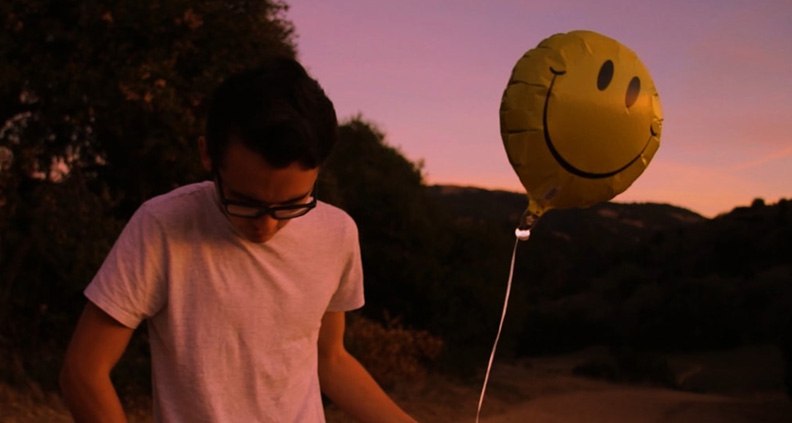
I would love to make a film on the Isle of Skye in Scotland. Not only is it incredibly beautiful, but the environment is a character itself. Everything is just so dramatic, from the cliffs to the waves to the vivid greenery. There are endless amounts of stories you could tell there. (Young)
In northern Sweden, the indigenous people to the land are called the Sami. They mostly follow their traditional ways of life, with their most popular livelihood being this semi-nomadic reindeer herding. To go to that environment, where it can be light or dark 24 hours a day and to see this peoples’ way of living—how they cope with living resourcefully off inhospitable land and the beauty of the long sunrises and sunsets, reindeers on an empty white plane, their elaborate colorful clothing, quite the dream of mine. (Baratelli)
Good question. I recently had a connection flight in Hong Kong, and I could actually see the city from some of the airport gates. That city is just glowing. No wonder so many good movies are made there! (Ferguson)
India, how the colors and the wonder of the culture mix with the harsh realities of impoverishment and how hyper-realism intertwines with spirituality. (Taplitz)
If I had the opportunity to make a film in India, I would go in a heartbeat. I’m incredibly interested in India’s rich culture, traditional food, and ancient languages. (Bernal)
What’s the best film you’ve seen so far this year?
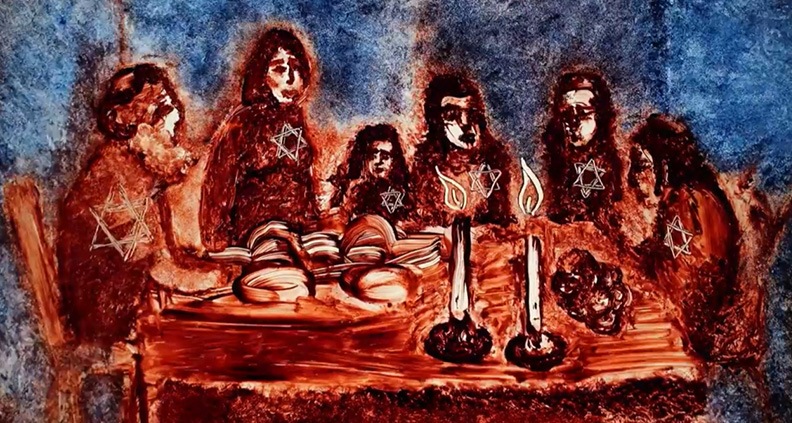
I finally got around to watching Ex Machina last month and it was amazing! The tension and mystery Alex Garland was able to evoke was intense and captivating and the cinematography was stunning. But if we’re talking about a movie that was released in 2018, I would have to say Avengers Infinity War—and I’m not even that big of a Marvel fan! I guess seeing 10 years of cinema lead into one huge epic was an experience I will never forget. (Modi)
The best film I’ve seen this year has to be Carlos López Estrada’s Blindspotting. Blindspotting has amazing characters with interesting arcs and a fantastic story. The film shook me to the core the first time I watched it and still does whenever I revisit it. I’m going to be very upset if it doesn’t get any recognition when awards season rolls around. (Ramey)
This is a hard one. As a movie, I loved seeing Eighth Grade. This movie did what The Breakfast Club. HOWEVER, my favorite experience was with Avengers: Infinity War. It was absolutely amazing, not only seeing these characters that I have loved and followed for years and years and years but watching it opening night with my best friends in an actively enthusiastic theater was an experience that ranks in my top five of 2018. (Rome)
I really enjoyed Bart Layton’s film American Animals. My short film SONA was an official selection at Newport Beach Film Festival this year, and American Animals was the Opening Night Premiere. It was such an unexpected surprise and a unique, really cool film. (Pacini)
Without a doubt, Isle Of Dogs. Four of my favorite things include Wes Anderson’s visual style, Japan, animation with mature themes and dogs. This film ticks all the boxes quite frankly. (Ferguson)
What’s your favorite part of the filmmaking process?
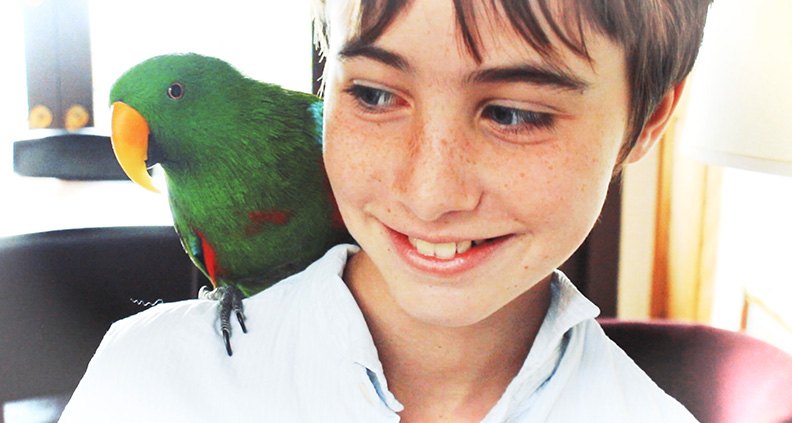
I love writing and coming up with stories to tell. It’s very rewarding to build something huge off of just a tiny bit of inspiration, whether it is an image, or conversation, or feeling. I have notebooks upon notebooks filled with one-sentence story ideas. (Young)
I love production the most. It’s awesome watching this story be brought to life and having fun with the people you’re telling this story with. I love the stress of running around set and I love interacting with the cast and crew and taking goofy pictures for personal memories. Then at the film festivals, we would point to the screen and recall the moment where Dylan slipped into the lake to escape from a bee (that wasn’t actually a bee, but a fly.) No one would know why we were laughing but we would and that’s all that really mattered. (Rome)
My favorite part of the filmmaking process is seeing everything you’ve imagined, written and dreamed about for months or years come together to make the final piece of work. Nothing compares to that feeling. (Pacini)
I absolutely love writing. It’s when the core of the film is built and where I have the most creative freedom to come up with all these intricate images and characters. The challenge of this (and in some ways the fun of it) is that then I have to figure out how to realize this crazy piece of writing to some kind of physical reality. (Taplitz)
Conception and creation. I like to see what I’ve created in my mind come to life in the complete opposite way I intended (Carrasco)
I enjoy shooting on location because there are inherent problems to doing so that are impossible to prepare for. When I’m faced with an obstacle, the course of action I take around it ends up being stronger than if I wasn’t forced to rethink my preconceived path. It inevitably increases the quality of my work in an extremely rewarding fashion. (Torrington)
What do you want your film to communicate to viewers?
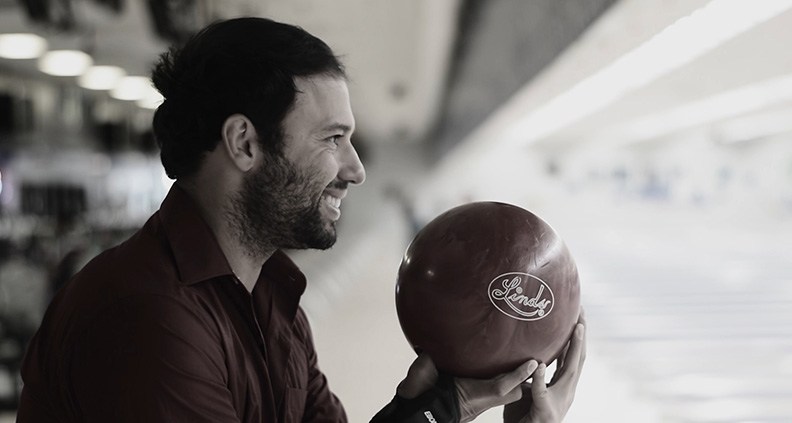
I want to make people laugh! (Hicks)
I take personal stories and transform them into a film that everyone can connect to. My films typically look at the beauty of the relationships in our lives—whether it be family, friends or even complete strangers. I want viewers to recognize how much love surrounds them if they just look around. (Young)
It depends on the type of film I’m making, but I always want my audience to resonate with the themes expressed in the film and to hopefully change their life in some way for the better! (Modi)
I want to communicate a story that will stay in people’s minds as well as characters that are fun and thoughtful. I want to encourage positivity in people’s lives; I want audiences leaving the theater feeling better than how they came in. (Ramey)
I try to show that there are stories everywhere, even in the smallest moments and strangest places. Stories that you can relate to, about things like love, hope, fear, family and friendship. (Pacini)
I want the clearest thing in my movie to be what the characters are feeling. If it’s done right, the emotion transfers straight to the audience. (Ferguson)
I hope the audience understands and can empathize with the characters I’ve written after watching my films. I really enjoy imagining different characters and put a lot of effort into making them three dimensional, so I hope that comes across. (Kenet)
I want to communicate authenticity in my films. I want my audience to be vulnerable to all the emotions my films may make people feel—whether that’s genuine happiness, anger, or even nostalgia. Through this, I hope to reach all audiences. (Bernal)
What’s your dream project?
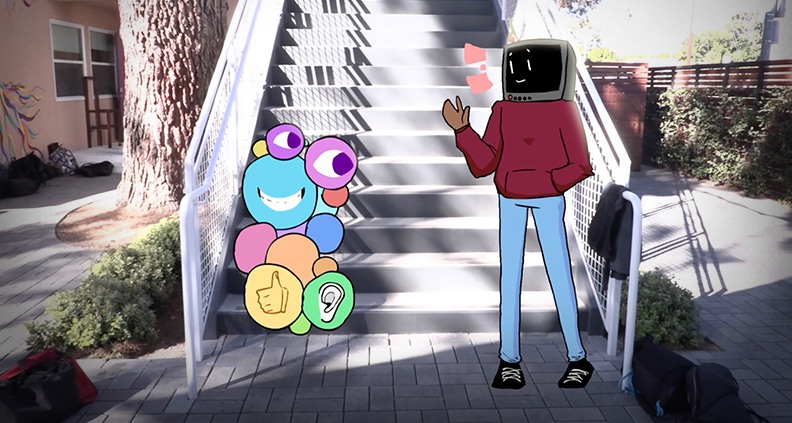
Right now, I think it’s this desire to make some sort of anthropologic film, possibly about members of the Sami. I’m a big fan of blending documentary and fiction elements, and one of my ideas is to go to Sapmi and construct a docu-fiction film centered around a young female reindeer herder going about her life—and all the troubles that may come with it. (Baratelli)
My dream project is a hybrid of Greta Gerwig’s writing with the cinematography of Roger Deakins. Something personal and character driven but with a living breathing world for characters to live and interact in. (Ramey)
I’m a huge fan of Japanese anime, and my dream project would be to work with Masashi Kishimoto on a live action version of the Naruto series. Anime can be hard to translate to live action and still attract a wide audience, but I’ve been working and testing some approaches to that for several years now. I’d like a shot at bringing those characters and worlds to life one day. (Pacini)
Make a music video with my favorite artists. (Carrasco)
My dream project would be a cartoon about street wear and fashion that takes place in New York, or a funny movie starring Eric Andre—one of my favorite absurdist comedians. (Hicks)
My dream is to make a film about the urban exploration community. I want to tell a story about the people who pursue the rooftops, utility tunnels, abandoned buildings etc., that are isolated from the “normal” world. They are the ones who seek to access the inaccessible spaces that lie hidden in everyone’s plain sight. (Torrington)
I’d like to make a film about my mom’s childhood growing up in Spain during Franco’s dictatorship. She and my aunts have a lot of crazy stories from their childhood that I really want to turn into a feature. (Kenet)
What are you looking forward to at the LA Film Festival?
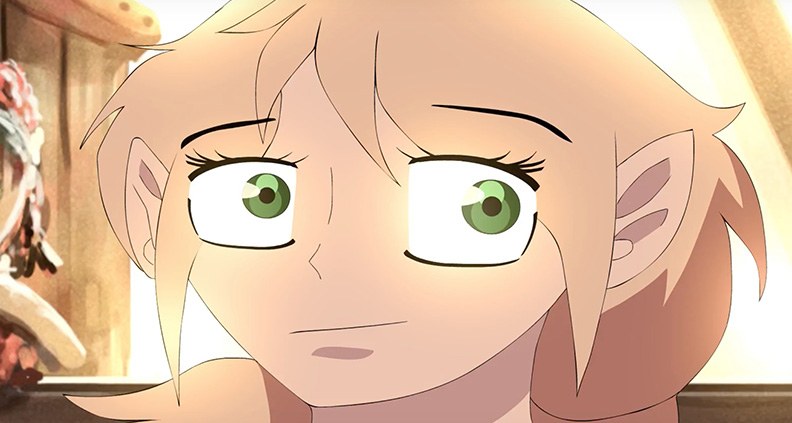
Meeting others! I think it’ll be great to connect with other young filmmakers but also come with a certain degree of conviction about showing the way films can be rather than how they’re currently constructed. (Baratelli)
To watch the other high school student films that were accepted. I’m always interested to see what kinds of films and narratives my peers are making and exploring. (Modi)
I’m looking forward to networking and branching out. This is going to be the biggest film festival I have attended and been accepted into in the town that I now live in, so I will need to really put myself out there and absorb as many opportunities I can. (Rome)
There are two things I look foreword to this LA film festival. One: sharing Goodbye Sam with a larger audience and being there in person to see how the story translates from a tiny computer to the big screen. And Two: getting inspired by other films and connecting with other filmmakers and film lovers. (Taplitz)
Meeting other future filmmakers. (Carrasco)
I’m looking forward to meeting all the breathtakingly talented filmmakers at LA Film Festival. I am sure I will meet many incredibly creative and unique-minded individuals and am incredibly excited to be included in this filmmaking community. (Bernal)
I’m excited to see other people’s work that they’ve put time into, and share my work with them. (Hicks)
2018 FUTURE FILMMAKER SHORTS
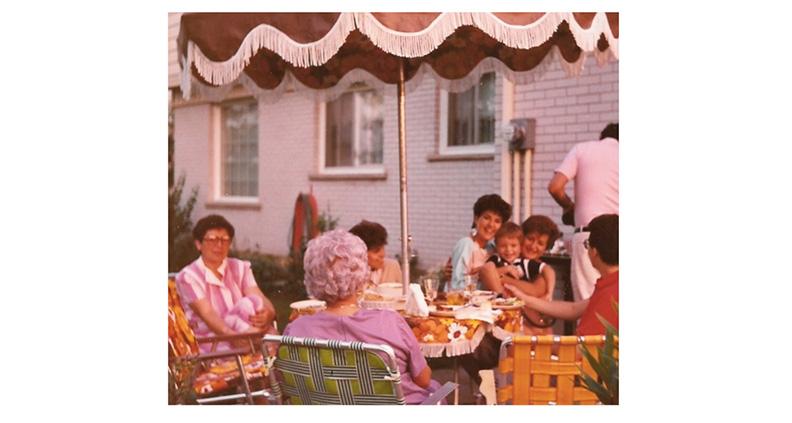
The Backstage – South Korea (DIRECTORS Nyeonho Song and Yejin Uhm) – With only five minutes left until the play starts, the director is struggling to fix all the problems.
Dieu Merci: The Story of Michele Rodri – USA (DIRECTORS Fiona Fortunato, Grace Ma, Idalis McZeal, Xenia Bernal, Ziggy Hicks) – Jewel-toned and hand-painted animation illustrates the personal testimony of a child survivor of the Holocaust.
Flare Out – USA (DIRECTOR Monica Menor) – A young girl with a strange addiction to fire quickly develops a crush on a boy.
Goodbye Sam – USA (DIRECTOR Theo Taplitz) – A boy and his posse say goodbye to a beloved friend.
In or Out – USA (DIRECTOR Lex Torrington) – A young man wrestles with the risks of an extreme activity.
Just Stories – Singapore (DIRECTOR Ishan Modi) – A senior couple experiences the isolation and uncertainty of old age.
Marmalade Melancholy – USA (DIRECTOR Joji Baratelli) – A man stuck in the monotony of life is surprised when the absurd becomes reality.
Plan A Plan B – Mexico/USA (DIRECTOR Kimberly Moreno Chavez) – A documentary highlighting the stories of Haitian immigrants who were unable to cross to the United States, but who instead found successful lives in Tijuana, Mexico.
Play The Game – USA (DIRECTORS Austin Ramey, Roberto Pino, Declan Kramer, and Diego Dominguez) – A talented young man has to beat his tough competition in the final round of a bowling tournament.
Queery – USA (DIRECTOR Milo Ferguson) – With their faces hidden behind animations, young members of the LGBTQ+ community are interviewed about their identity, struggles and advice.
Smile, You’re on Camera – USA (DIRECTOR Tomas Carrasco) – A young man can’t seem to escape the spotlight as he is followed by cunning cameramen.
Sona – USA (DIRECTOR Adrian Pacini) – An elf child, ill from headaches and surviving with her mother in a dangerous land, discovers that special powers may provide freedom.
Stupidly Happy – USA (DIRECTOR Jonathan Rome) – A heartbroken man seeks happiness through a balloon.
Weight of the Whale on Her Shoulders – USA (DIRECTOR Lola Kenet) – A young artist feels suffocated by the success of those around her and struggles to find worth in herself and her art.
You Look Nothing Like Your Mother – Canada (DIRECTOR Ava Young) –A personal documentary exploring the meaning of family through the director’s relationship with her adoptive mother.
Individual tickets to screenings and events are now available to both Film Independent Members as well as the general public. Festival Passes are currently on sale as well—see all of our different pass options below:
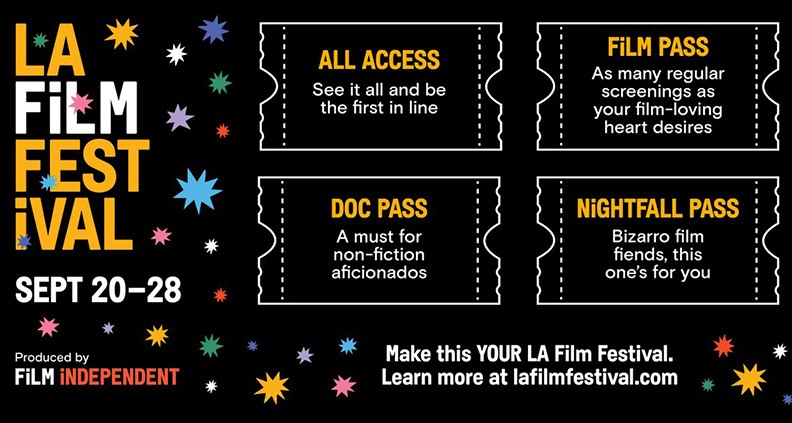
Visit tickets.lafilmfestival.com and be sure to follow the 2018 LA Film Festival on Twitter, Facebook, Instagram and YouTube. Visit our official Festival Store by clicking here.
Presenting Media Sponsor is Los Angeles Times. Official Host Venue is ArcLight Cinemas. Platinum Sponsors are American Airlines, EFILM | Deluxe, HBO and TikTok. The University Sponsor is Loyola Marymount University School of Film and Television. Official Screening Partner is Wallis Annenberg Center for the Performing Arts. Festival Supporters are Directors Guild of America, eTech Rentals, Kona Productions, TREETI and Visit Seattle. Festival Affiliates are 21st Century Fox Global Inclusion, ATK Audiotek, Konsonant Music, SAGindie and Writers Guild of America West. Additional support provided by National Endowment for the Arts. Stella Artois is the Official Beer. IMDbPro is the Official Industry Resource. CITI is the Official Credit Card. The LINE, NoMad Los Angeles and Freehand LA are the Official Hotel Partner. Essentia Water is the Official Water. Hillersden Estate Wines is the Official Wine. Getty Images is the Official Photographer.
(Header: Just Stories)